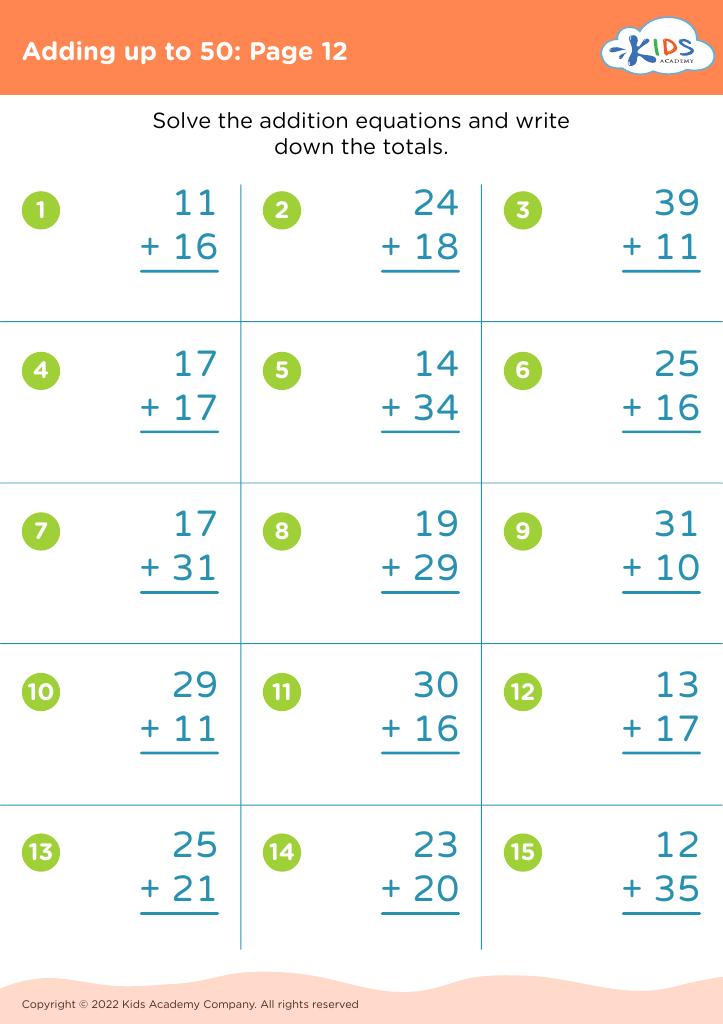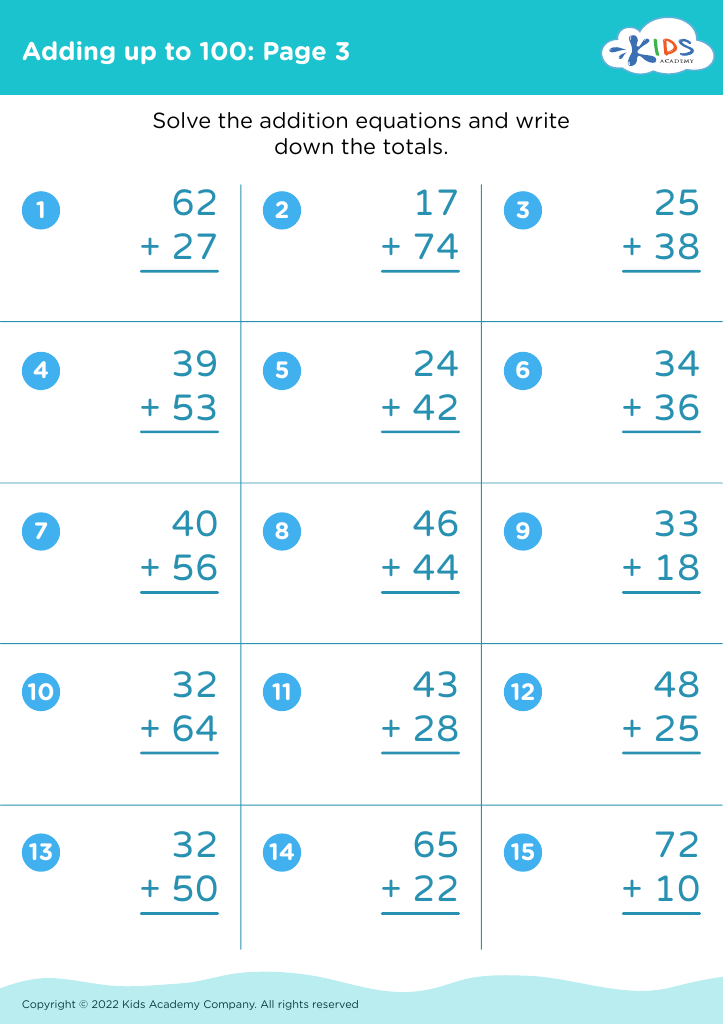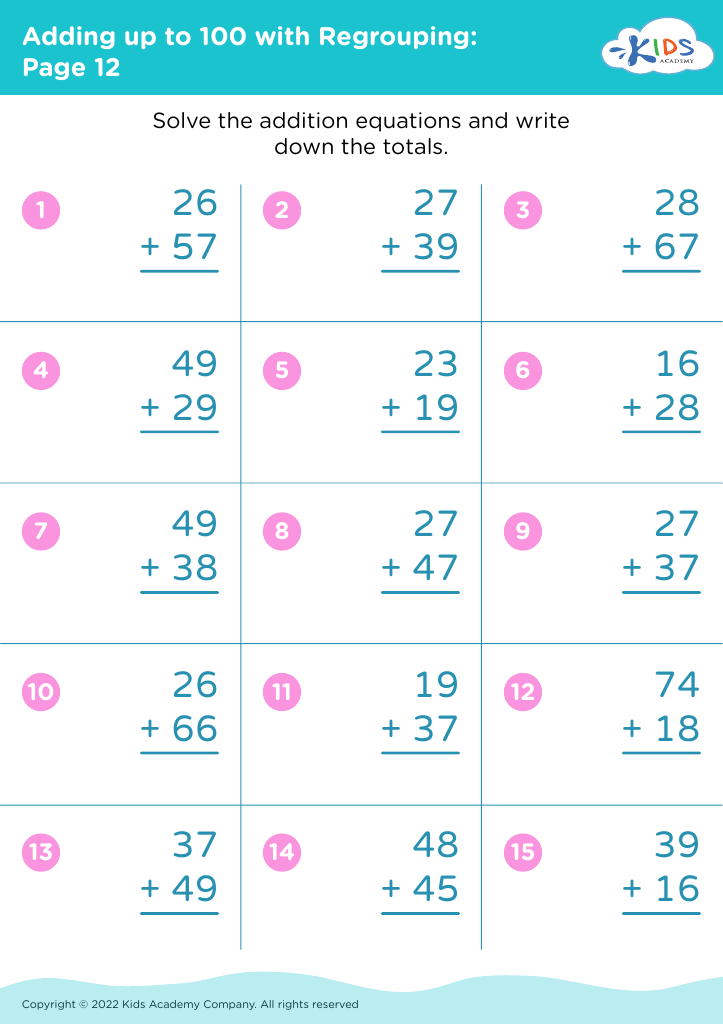Identifying Animals Math Worksheets for Ages 8-9
3 filtered results
-
From - To
Discover engaging Identifying Animals Math Worksheets designed for children aged 8-9. These worksheets provide a fun and interactive way for young learners to enhance their mathematical skills while exploring the fascinating world of animals. Tailored to align with educational standards, our worksheets cover essential concepts such as counting, addition, and data interpretation, all centered around diverse animal themes. Each exercise encourages critical thinking and connection-making, helping students develop their problem-solving abilities in a delightful context. Perfect for classroom use or at-home learning, these worksheets are a valuable resource for parents and teachers seeking to make math enjoyable and relatable for young minds.
Identifying Animals Math for ages 8-9 is essential because it seamlessly integrates mathematical skills with biological knowledge, fostering a well-rounded education. At this age, children are developing critical thinking abilities and are increasingly curious about the world around them. By engaging with math concepts through animal identification, they not only learn to count, measure, and categorize but also gain insights into scientific classification, ecosystems, and biodiversity.
This interdisciplinary approach enhances learner engagement, making math more relatable and enjoyable. For instance, when students calculate the number of certain species in a zoo or compare weights and sizes of animals, they apply mathematical operations while exploring fascinating aspects of nature.
Moreover, this learning helps develop problem-solving skills as they encounter real-world scenarios that demand analytical thinking. Parents and teachers should care about such programs because they nurture a child's cognitive and social development, leading to well-balanced citizens who appreciate both STEM fields and environmental conservation. Involving animals in math learning provides a fun and memorable experience, making it far more than just numbers, instilling a sense of curiosity and responsibility towards our planet from a young age.




















